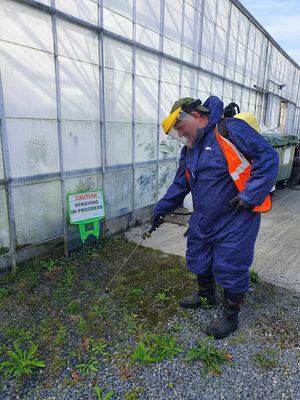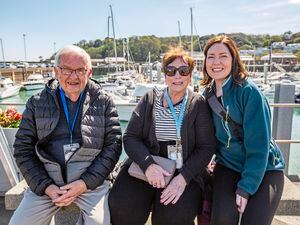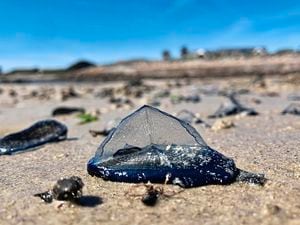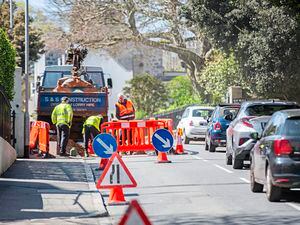States Works commits to curb herbicide use by 2021
A COMMITMENT to reduce the use of herbicides by 2021 has been made by States Works.

In particular this will affect staff’s use of herbicide glyphosate, which in the USA has been linked to cancer.
The chemical, which has been used to control unwanted vegetation for more than four decades, is also believed to have an effect on pollinating insects who come into contact with plants that have been treated.
While authorities in Europe and America have said glyphosate is safe when used carefully, the maintenance service is trialling new alternative methods of weed control to help eliminate the use of herbicides.
It has pledged to phase out, by the end of 2020, the use of glyphosate-based herbicides.
They hope it could help minimise environmental impacts and protect the island’s biodiversity.
States Works land management manager David Correia said: ‘A number of glyphosate alternatives are being trialled such as acetic acid, which is both organic and safer for the environment.
‘The chemical, which is contained in vinegar, affects weeds on contact but does not penetrate into the plant’s root system.
‘The effect on the plants will be very apparent within a 24-hour period and may seem to indicate an initial dieback, but eventually the plant may revive again.
‘The same applies to pelargonic acid, where again it does not seem to kill roots of pernicious tap-rooted plants.’
He added that trials were ongoing with the various different alternative methods for specific locations.
‘All of the alternative methods trialled so far have required more time than when using glyphosate, often because more treatments are required to achieve the same desired effect,’ he said.
‘However they are a lot better for the environment and more sustainable in the longer term.’
Another method being considered by States Works is manually removing weeds using mechanical sweepers and brushes.
The use of hot water and foam is also being investigated.
‘The foam stream system uses starch to effectively insulate hot water, keeping the heat on the plant for a longer period causing it to die back,’ said Mr Correia.
‘There are pros and cons for these more mechanical methods – some can be noisy and others require the use of bulky application equipment that can limit their use and prevent access into smaller more difficult areas of the island.
‘Ultimately there won’t be just one method that will provide the solution, but instead we will be developing a range of different interventions across different sites to come up with the best solution for our clients.’
Guernsey Water monitors for glyphosate regularly and forwards this data to Environmental Health and Pollution Regulation for its records.





